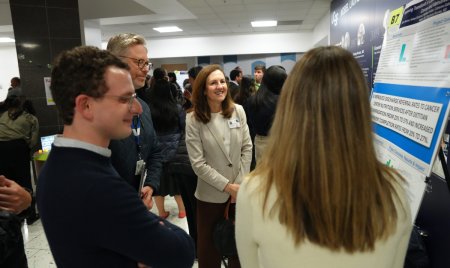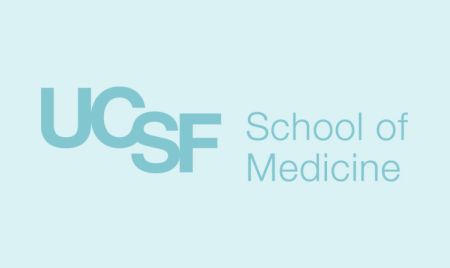Personalized Mentorship and Growth: Reflecting on the First Four Years of SPAN (Specialty Practice Ambulatory sub-iNternship)

SPAN student examining a patient
Originally launched in 2019 to complement in-patient focused clinical rotations, SPAN (Specialty Practice Ambulatory sub-iNternship) facilitates a greater understanding of ambulatory medicine among fourth-year medical students by pairing them with a physician preceptor to work alongside for 12 sessions over the course of 10 months. The goal of SPAN is to encourage students to explore medicine outside of the hospital, hone their clinical skills, grow in professional responsibility, and form a coaching and mentoring relationship with a preceptor, all to better prepare soon-to-be graduates for the realities of residency.
To commemorate the fourth anniversary of the SPAN program, we spoke with Kate Lupton, MD, FACP, Professor of Medicine, and SPAN Director. In discussing the strengths of the program, Dr. Lupton highlighted the unique element of student personalization in SPAN preceptor selection, as well as the opportunity to engage more of the UCSF community in medical education.
Dr. Lupton said, “I am proud to have been able to build opportunities for faculty to work with learners in a longitudinal setting, as well as providing medical students opportunities to have a precepting relationship outside of primary care. [SPAN] brings depth and skill to the way students care for patients in outpatient settings.”
What sets SPAN apart from other longitudinal, ambulatory clinical rotations already offered at the School of Medicine is the opportunity for students to identify their own preceptor in the specialty or subspecialty of their choosing. In SPAN, students can engage with outpatient surgery clinic, community psychiatrists, or ambulatory gynecology, just to name a few options, thereby developing a deeper appreciation for the diversity of clinical practice available to them in their specialty of choice. An additional benefit to the SPAN model is the increased role of student autonomy, particularly in the scheduling process. SPAN students work directly with preceptors to find dates and hours that maximize their own learning experience.
For many students, the potential for skill building, mentorship, and growth that comes with building a relationship with an attending over a long period of time makes SPAN a highlight of their fourth year. Raj Fadadu, MS-4 said, “My SPAN preceptorship was a unique opportunity that allowed me to experience a high level of autonomy in outpatient care, helping me develop a stronger set of clinical skills. With guidance from my amazing mentor, I built upon my foundation in clinical dermatology and feel better equipped with the knowledge, skills, and confidence to start residency later this year.”
According to Dr. Lupton, preceptors also view SPAN favorably. She notes that preceptor recruitment occurs annually, and many choose to return year after year, reflecting the positive experiences preceptors have working longitudinally with highly motivated and enthusiastic students.
To gain more insight into the SPAN preceptor perspective, we connected with Matthew Y.C. Lin, MD, Associate Professor of Surgery, and Lekshmi Santhosh, MD, MAEd, Associate Professor of Medicine, both of whom have served as SPAN preceptors and shared their reflections on the experience.
Dr. Lin shared, “I have truly enjoyed my experience as a SPAN Preceptor as it is a privilege watching senior medical students become a complete finish product right before they graduate. By the end of the year, the relationship becomes more of a partnership as the student and I make joint decisions together in clinic on how to best care for the patients.”
Dr. Santhosh said, “Being a SPAN preceptor is incredibly fun and rewarding, I enjoy teaching medical students about my specialty and about outpatient medicine in general. One of my first SPAN students is currently a first-year Pulmonary & Critical Care Medicine fellow and it’s been so wonderful to get to know trainees so well over time. I look forward to being a SPAN preceptor every year!”
Looking ahead to the future of SPAN, Dr. Lupton and her team are always reflecting on how to further enrich the curriculum. Currently, they are exploring ways to incorporate more of the work led by the Anti-Oppressive Curriculum Initiative team into preceptor faculty development.
Overall, SPAN has proven itself to be an important addition to the Bridges Curriculum, acclaimed by students and preceptors alike, with new developments on the horizon. We look forward to the next SPANniversary.
If you are interested in learning more about SPAN or precepting a SPAN student in the Class of 2024, please contact [email protected].









